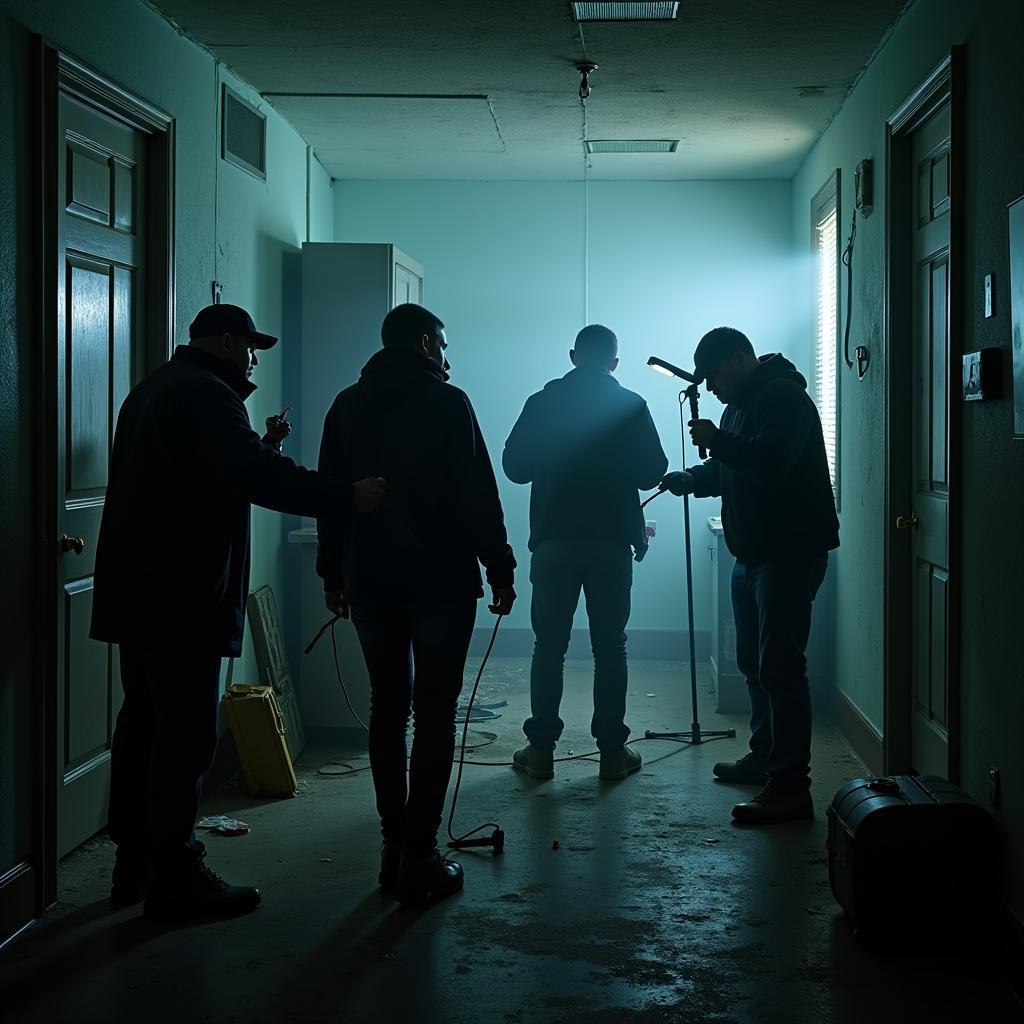Gci Research, a fascinating field within paranormal investigation, delves into the subtle energies and unexplained phenomena that surround us. From ghostly apparitions to psychic abilities, GCI research seeks to understand the unseen forces that shape our world. This exploration takes us beyond the realm of conventional science, challenging our perceptions and pushing the boundaries of human understanding.
What is GCI Research?
GCI research encompasses a wide range of investigative techniques and tools used to explore paranormal claims. It often involves meticulous documentation, rigorous analysis, and a healthy dose of skepticism. While the scientific community may not fully embrace GCI research, its proponents argue that it offers valuable insights into the nature of consciousness, energy, and the universe itself. This field is not for the faint of heart, as it requires a willingness to confront the unknown and challenge established paradigms.
The Tools and Techniques of GCI Research
GCI researchers employ a variety of tools and techniques, often adapting existing technology for paranormal investigations. These include:
- EVP Recorders: These devices capture electronic voice phenomena, believed to be the voices of spirits or other entities.
- EMF Meters: Electromagnetic field meters detect fluctuations in electromagnetic fields, which some believe indicate the presence of paranormal activity.
- Thermal Imaging Cameras: These cameras detect changes in temperature, which can sometimes reveal unseen presences or energy patterns.
- Dowsing Rods: While often associated with finding water, dowsing rods are also used by some GCI researchers to detect energy fields or locate objects of interest.
These tools, combined with meticulous observation and documentation, provide the foundation for GCI investigations.
Exploring the Different Branches of GCI Research
GCI research encompasses various subfields, each focusing on a specific aspect of the paranormal. Some of the most common areas of study include:
- Hauntings and Apparitions: Investigating reports of ghosts and other spectral phenomena.
- Psychic Abilities: Exploring and testing claims of telepathy, clairvoyance, and precognition.
- Cryptozoology: Searching for evidence of unknown or mythical creatures.
- UFOlogy: Studying unidentified flying objects and potential extraterrestrial contact.
Each of these branches presents unique challenges and opportunities for discovery, contributing to the broader understanding of the paranormal.
The Challenges and Criticisms of GCI Research
GCI research faces significant criticism, primarily due to the lack of empirical evidence and the difficulty in replicating results. Skeptics argue that many paranormal phenomena can be explained by natural occurrences, misinterpretations, or even deliberate hoaxes. However, GCI researchers maintain that their work is essential for exploring the unexplained and pushing the boundaries of scientific understanding.
 Challenges in GCI Research
Challenges in GCI Research
The Future of GCI Research
Despite the challenges, the future of GCI research looks promising. New technologies and methodologies are constantly being developed, allowing for more precise and reliable data collection. As the field continues to evolve, it may eventually bridge the gap between the paranormal and mainstream science.
How to Get Involved in GCI Research
For those interested in pursuing GCI research, there are numerous resources available. Joining a local paranormal investigation group, attending conferences, and reading books and articles on the subject are all excellent ways to get started.
 Joining a GCI Research Team
Joining a GCI Research Team
Conclusion
GCI research offers a unique and intriguing perspective on the world around us. While it may not provide all the answers, it encourages us to question our assumptions and explore the possibilities that lie beyond the realm of conventional science. GCI research continues to push the boundaries of our understanding, reminding us that there is still much to discover about the universe and our place within it.
FAQ
- What does GCI stand for in this context? (This article uses GCI as a generalized term for paranormal research and doesn’t represent a specific acronym.)
- Is GCI research scientifically accepted? (While not universally accepted, GCI research utilizes scientific methodologies to investigate paranormal claims.)
- What are some common misconceptions about GCI research? (Common misconceptions include the belief that all paranormal phenomena are easily explained or that GCI researchers are simply looking for ghosts.)
- How can I differentiate between credible GCI research and pseudoscience? (Look for research that uses rigorous methodology, acknowledges limitations, and avoids sensationalism.)
- Where can I find more information about GCI research? (Numerous books, articles, and online resources are available for those interested in learning more.)
- Are there any ethical considerations in GCI research? (Yes, ethical considerations include respecting private property, obtaining informed consent, and presenting findings responsibly.)
- Can anyone become a GCI researcher? (While no formal qualifications are required, a curious mind, a skeptical approach, and a willingness to learn are essential.)
Need help with your own Paranormal Research? Contact us! Phone: 0904826292, Email: research@gmail.com or visit us at No. 31, Alley 142/7, P. Phú Viên, Bồ Đề, Long Biên, Hà Nội, Việt Nam. We have a 24/7 customer support team.
You might also be interested in these related articles: “Understanding EVP Phenomena” and “The Science Behind Psychic Abilities”.